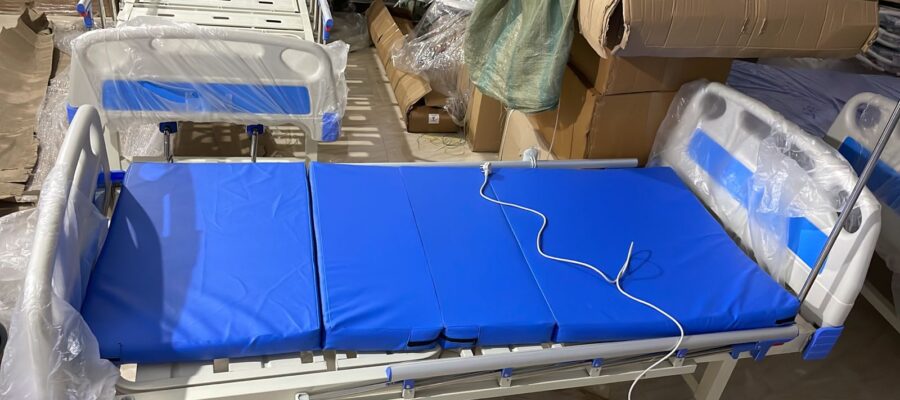It is difficult when you see a member of the family suffer from dementia. There are dramatic changes in the behaviour and personality of your loved one that it becomes a struggle to cope with the illness. However, it is increasingly a challenge when one is suffering from dementia oneself. I can see these changes in a close relative of mine who was diagnosed with dementia. She is 80 years old. If you are like her you might not understand what is happening and are afraid of physical, mental, and practical debilitation that results from having dementia. There is too much happening at the same time. It is scary. We show you some of the things that happen to elderly Book Trained and Certified Caretaker for Dementia Patient at Home patients and what to expect.
Thank you for reading this post, don't forget to subscribe!Common Challenges-
The most visible change seen in elderly dementia patients is the physical challenges. As the mind deteriorates, it is harder for the mind to take control of the normal bodily functions and the activities for daily living. An elderly dementia patient for example could suffer from incontinence, leakage, and sudden urges that if you have the illness you may need to wear diapers to protect from wetting yourself. Bathing and dressing become hard too. An elderly dementia patient may forget to shower every day or to change clothes. Or you may need assistance in bathing and dressing. Elderly dementia patients may forget to brush one’s teeth every day. You might fall while in the bathroom and injure yourself. Not only that, an elderly dementia patient forgets to eat healthily and drink enough water. You do not realize that you are hungry or thirsty. It can be the opposite, you might overeat and overdrink. The mind is lost and cannot remember these things. As one is cooking, one forgets how to turn the fire on and off on the stove. Added to that the stomach does not digest normally so elderly dementia patients choose to not eat at all. Or you can be very hungry and eat a lot that is hard to digest. As the memory deteriorates it is not easy to get out of the house and find your way back during morning or evening walks. My close relative did not return home at the expected time after an evening walk. Family trips become something to be afraid of as the surroundings are unfamiliar. An elderly dementia patient loses track of direction. Sleep cycles change as well. One can sleep in the daytime and be awake in the night time disturbing everybody else. My close relative is obsessed with cleaning the bathroom and the kitchen while awake at night or early dawn making noise in the house and turning it upside down. One has a disoriented and lost look. One loses sight and hearing.
Then there are the emotional challenges. An elderly dementia patient can become violent and aggressive. If you have the later stages of dementia you might bite, kick, punch, hit when touched or when approached. Elderly dementia patients may argue and fight with loved ones because they do not understand reality. You become afraid and have hallucinations. For example, you may think that the shopkeeper is cheating you. You accuse other family members of stealing. As a result, you start to hoard things. At the same time that an elderly dementia patient prefers isolation, you may suffer from boredom and loneliness too. One seeks companionship and connection as a result. But social skills may be awkward. Talking can be wrong timing or about wrong things or repeating stories. There is a strong need to chatter about nonsense or about the past. It can be irritating for loved ones to listen to.
Another challenge comes with practical things like personal safety, finance and legal, and living an interesting life while suffering from dementia. An elderly dementia patient can be a danger to oneself and one’s own personal safety and the safety of others. You might be capable of hurting yourself and hurting others. My close relative one day suddenly took out the gas connection risking fire in the house. One gets lost and can get hit by a car or bike while roaming around outside. One falls on the stairs or slides in the passageways. An elderly dementia patient can also forget to pay the bills and be responsible for one’s finances like balancing the chequebook and keeping track of money. As one gets older and more forgetful family members of dementia patients to realize the need for legal documents like making a will and a power of attorney.
Despite all these physical, emotional, and practical challenges, an elderly dementia patient has the right to a quality of life. One has a right to live an interesting life. Sometimes that becomes difficult in a nuclear family living in a metropolitan city. Family members go to school and the office and are out the whole day. The household help is too busy with the house chores that full care and attention cannot be given to the elderly dementia patient.
If you are encountering these challenges or if someone you love is, a care home may offer the perfect solution. A care home provides a safe and sound surrounding for an Elder Care Services In Bangalore Karanataka where one can have a quality of life and an interesting life. Professional help is available 24/7 who understands the situation and can help in the transition.



